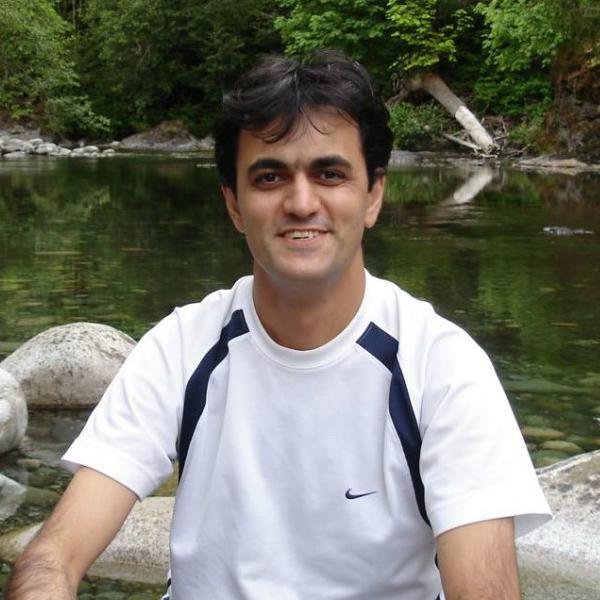Iran state media reports that at least eight people are dead after a fire broke out at the country’s notorious Evin Prison on Oct, 15.
However, the numbers could be much higher since no humanitarian agencies are on the ground to verify the government’s accounts.
Saeed Malekpour, who is living in exile in Vancouver, spent 11 years behind bars in Evin and anxiously watched dramatic videos of the fire on his social media feeds.
Watching the smoke billowing into the sky from the facility in northern Tehran, it took him back to his days and trauma as an Evin inmate.
“I had a lot of friends over there, I was worried about them,” Malekpour said.
“I’m very sad.”
2:03
Evin prison fire in Iran kills at least 4, injures 61 as protests rage on
Malekpour said according to his source with Evin Prison, his friends there are alive, but were shot by Iranian Revolutionary Guard Corps (IRGC).
“Fortunately they are alive, but most of them have bullets in their bodies. They are not in good condition” said Malekpour.
Sounds of prison sirens wailing and gunshots can be heard in several videos of the Evin Prison fire posted to social media.
The Islamic Republic denies this narrative and says the fire was started in the prison’s warehouse by a prisoner’s rebellion. Malekpour said no inmates could have been at the workshop in mid-evening because prison cells are shut at that time.
Trending Now
Over 1.5M dry shampoo products recalled in Canada over cancer risk
Hedley frontman Jacob Hoggard sentenced to five years, granted bail pending appeal
Evin is no ordinary prison. It even has the nickname Evin University due to all the academics detained there said human rights lawyer Gissou Nia.
Many of Iran’s best and brightest, including scientists, human rights lawyers like Nasrin Sotoudeh, filmmakers like Jafar Panahi and bloggers like Hossein Ronaghi, artists, writers, journalists and dual nationals have been imprisoned there.
Many of the current anti-regime protestors arrested over the last month are also being held there.
Malekpour was also detained there following his arrest.
He was living in Victoria writing open-source software in Farsi. Unbeknownst to him, he said, someone else used that for a pornographic site. When visiting his dying father in Iran in 2008, he was picked up off the streets and would spend 11 years in Evin.
1:10
Iranian-born Canadian resident back in B.C. after 11 years in prison
With his last death sentence commuted to life, he was granted a brief bail, which is when he made a harrowing escape out of the country just three years ago. Malekpour thanked his family and international human rights advocates who paved the way for his return to Canada.
“When they arrested me they put me in solitary confinement for more than two years. In (the) first two months they tortured me day and night. They tortured me physically and emotionally. They tortured me by bat, by lashes, by teasers.”
Malekpour said the worst part was the psychological torture.
“They told me that we arrested your sister, your wife, your mother. I could hear screaming from afar, a woman and I didn’t know who that was. They told me that could be your loved one. That was the worst part.”
1:31
Vancouver resident describes his time at Evin Prison in Iran
Nia said at Evin there is a huge part of the prison population that is there for no crime that is recognizable under international law.
“There is no basis no on which to continue to imprison them. We already knew this previously but given that they were put in harm’s ways with reports of injuries from smoke inhalation and reported deaths this is an unacceptable situation and the global community must be insisting that these individuals be released” she added.
According to Amnesty International’s evidence it “raises serious concerns that the authorities sought to justify their bloody crackdown on prisoners under the guise of battling the fire and preventing prisoner escapes.”
Malekpour agrees and believes the Islamic Republic intentionally set the fire. The regime denies all allegations.
While it’s not clear what the origins of the fire were, what is clear is that this potentially raises the stakes for those protesting against the regime. There is no doubt symbolism in Evin, the regime’s most identifiable structure representing repression, being set on fire.
© 2022 Global News, a division of Corus Entertainment Inc.



